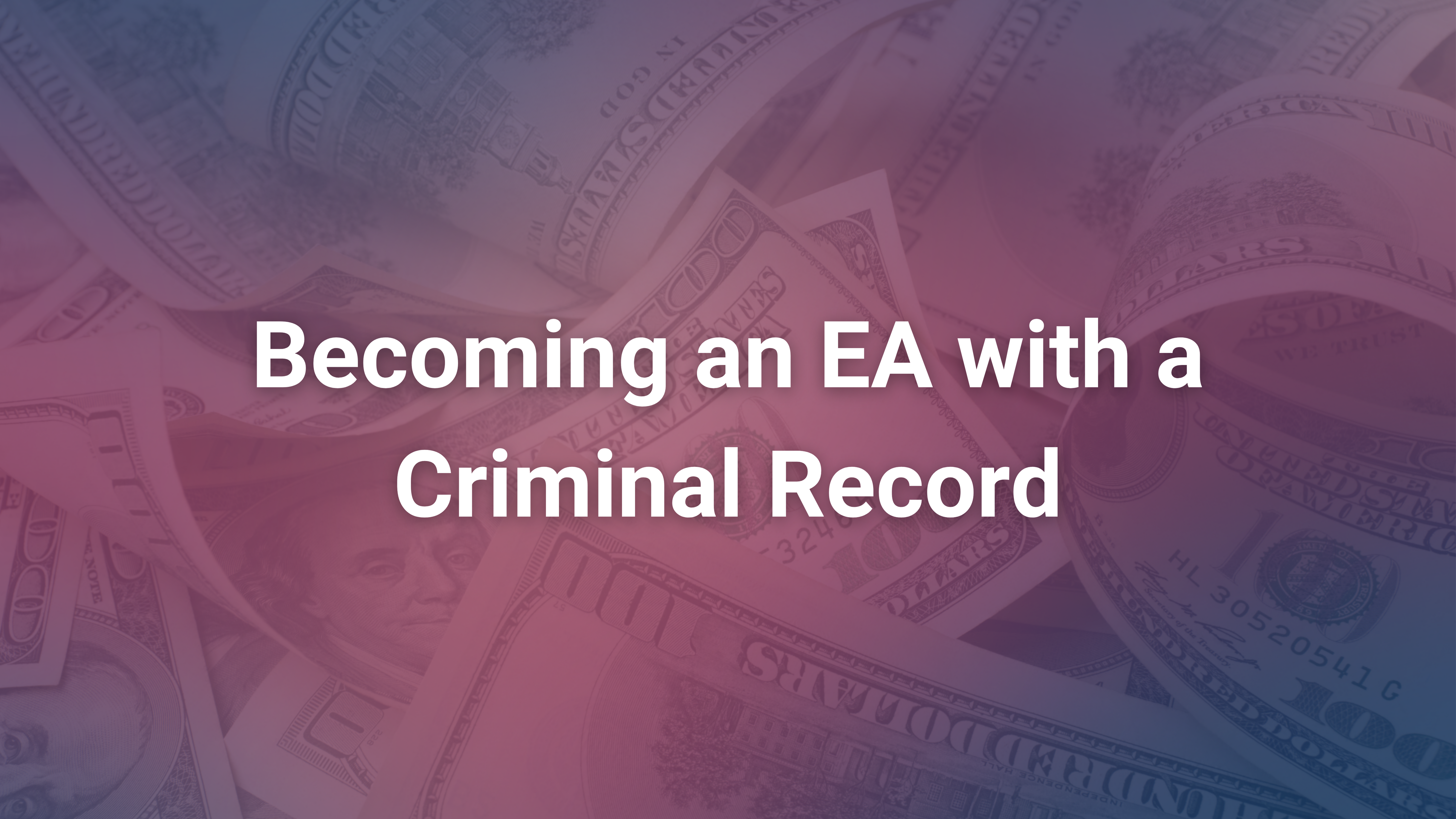Can someone with a past—specifically, a criminal record—become an Enrolled Agent? Fair warning: there’s no straightforward “yes” or “no” answer.
The Background Check
First, let’s clear up a misconception. Everyone, regardless of their past, can study for and take the EA exam. The IRS doesn’t put up barriers on who can prepare for and take the Special Enrollment Examination (SEE).
But, after passing the exam, you don’t automatically become an enrolled agent.
There’s a crucial step before you’re officially stamped with the EA status: the background check.
When you apply to become an EA, the IRS will do a thorough check, examining your personal and tax compliance history. This includes checking if:
1. You’ve filed your tax returns on time.
2. You’ve paid, or have arrangements to pay, any outstanding tax debts.
3. And yes, the IRS looks into any criminal convictions related to federal tax matters.
Is a Criminal Record an Absolute Barrier?
Here’s where it gets nuanced. Having a criminal record doesn’t automatically disqualify you from becoming an EA. It really depends on the nature and severity of the crime. The IRS primarily looks at offenses directly related to taxation or financial matters. For instance:
If you’ve been convicted of tax evasion, it’s unlikely that you will become an EA. Being worthy of trust in relation to finance and taxation is directly related to the core responsibilities of an EA.
On the other hand, if you had a misdemeanor unrelated to tax or financial matters when you were younger, the IRS might not view it with the same weight.
Based on the IRS document “IRM 25.20.3.4.2 Criminal Background Check – Enrolled Agents (CBC-EA)” there’s a chart that grades crimes as serious, moderate or minor risk level, then the years since the conviction and how many crimes were committed are taken into account. Based on this chart, DUI, prostitution, traffic violations and others are considered minor and would not likely be disqualifying. Most financial related crimes and crimes related to fraud are considered major. I recommend you take a look at that chart and try to assess your situation.
Regardless, I would advise you to be transparent and honest. If the IRS finds you lying or attempting to hide or downplay past mistakes, it could end up being more damaging than the actual offense.
Making Your Case
If you’ve got a less than ideal record, it doesn’t mean you’re completely out of the running. You can:
1. Be Proactive: When applying, provide explanations for any past offenses. Offer context, and if possible, demonstrate rehabilitation or personal growth. But always remember to stay honest.
2. Seek Legal Advice: If you’re hesitant about how your record might be perceived, consult with a legal professional. They can provide advice tailored to your specific situation.
3. Stay Updated: Check to see if it’s possible to have minor convictions expunged or sealed from your record. For example, in New York it is possible to have certain convictions sealed from your record but not “expunged” but the laws vary state to state. It’s always worth checking if this is an option.
The IRS has strict ethical standards, but they also understand that people change. If you’ve shown genuine rehabilitation and a commitment to ethics, you may be allowed to become an EA. Remember, the primary goal of the background check is to ensure that EAs are trustworthy and knowledgeable in tax matters. If you can prove that your past doesn’t define your capabilities as a tax professional, you have a fighting chance.
While a criminal record might impede your path to becoming an Enrolled Agent, it doesn’t put up an insurmountable wall. If you’re dedicated to the profession and committed to maintaining its integrity, don’t let past mistakes deter you. That being said, I don’t think becoming an EA is worth pursing and investing time and money into if you have a tax-related criminal record.
